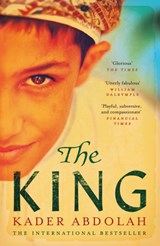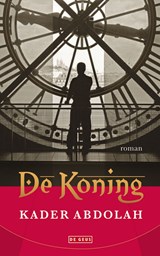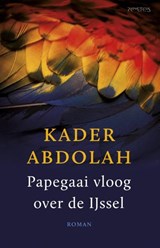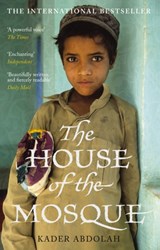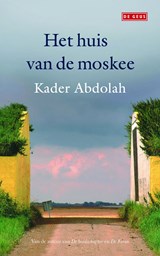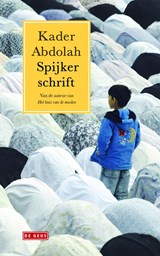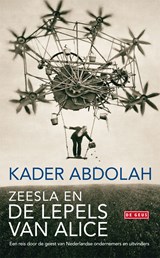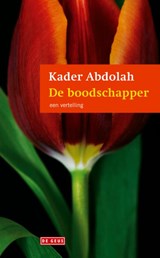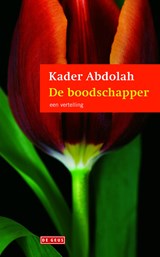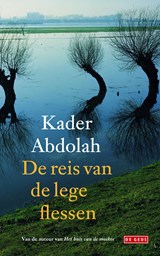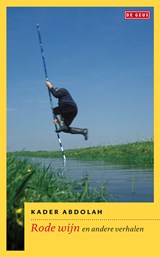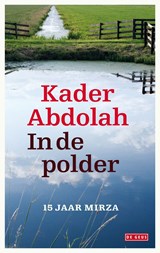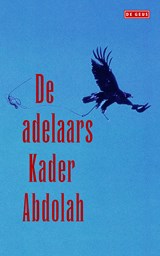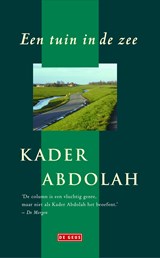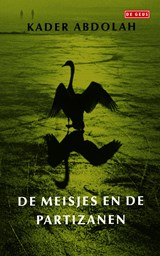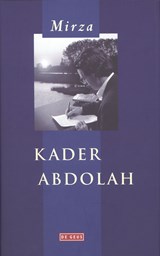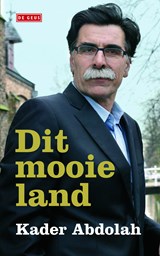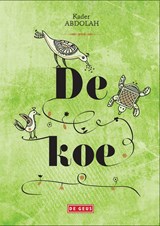Nancy Forest-Flier on translating the first sentence of Kader Abdolah’s De koning (The King)
02 oktober 2014It is the nineteenth century and the kingdom of Persia is at a turning point. When a young King, Shah Naser, takes to the throne he inherits a medieval, enchanted world. But beyond the court, the greater forces of colonisation and industrialisation close in. The Shah's grand vizier sees only one solution.
William Dalrymple schreef over Kader Abdolahs The King: 'The King is utterly fabulous in both senses of the word: a sly, witty, knowing fable, full of charm and humor. Deceptively simple in its storytelling, it reads like one of Angela Carter's fairy tales transposed into the nineteenth-century Qajar Persian court. Kader Abdolah is a masterful and completely addictive storyteller.'
Nancy Forest-Flier vertaalde Kader Abdolahs De koning als The King. We vroegen haar haar vertaling van de eerste zin toe te lichten.
N.B. We publiceerden destijds voor uit De koning. Lees het fragment op Athenaeum.nl.
In den beginne was er de Koe and de Koe was bij God, die de naam Ahuramazda droeg.
In the beginning was the Cow, and the Cow was with God, who bore the name Ahura Mazda.
Any Dutch person who is biblically literate will recognize this sentence as an adaptation of the first sentence of the Gospel of John from the Statenvertaling (1637) of the New Testament (‘In den beginne was het Woord, en het Woord was bij God, en het Woord was God.’), but will also be reminded of the first verse of the book of Genesis from that same translation (‘In den beginne schiep God den hemel en de aarde.’). So when it came to doing an English translation of that first sentence, it was a no-brainer: go for the King James Version (1611). And so I did. No translation struggles here.
The storyteller
But for me the question was: why did Kader Abdolah use these biblical quotes as his models for this very important first sentence? Would this choice have an impact on the rest of the book and on the way I would translate it?
The King is the story of Shah Naser of the Persian Qajar dynasty, who was born in 1831 and was assassinated in 1896. He was a man with his feet in two different worlds: the ancient world of his fathers in which autocratic rule, a large harem protected by eunuchs, and immense wealth were taken for granted, and the new world of technological innovation and political reform. He was the first shah to visit Europe; he introduced telegraphy to Persia and launched the publication of the country’s first newspaper. But he also had his vizier assassinated, regarding him as too progressive and threatening to his total power. And he found himself caught up in the international struggle between Britain and Russia to acquire rights to Persian oil, a natural resource whose immense value was barely appreciated by the Persians themselves.
This essentially is the story of The King, but it’s far more than that. In the introduction to the book Kader Abdolah begins by describing the traditional role of the Persian storyteller, for whom historical accuracy was always secondary to narrative momentum. He tells of the great Persian poet Abolqasem Ferdowsi, whose masterwork The Shahnameh, or The Persian Book of Kings, is a work of world literature little known in the West. And he holds up the work of Ferdowsi as his model for the story of Shah Naser. As I prepared to do my translation I picked up a copy of a new English translation of The Shahnameh, a much-abridged and beautifully produced Penguin classic. The Shahnameh begins with a story of origins, a Genesis if you will, and goes on from there. As I did more research I found that, like the ancient storytellers, like Ferdowsi himself, the narrator of The King is not particularly interested in historical accuracy. He’s interested in presenting a story of origins. In telling the tale of Shah Naser, the storyteller is helping us understand the birth of modern Persia, of Iran, but in a traditionally Persian way.
Dominion over you
This, of course, accounts for that first sentence. The author knows his audience, and he knows that if he works with certain formulae he will elicit certain responses. A Dutch person reading ‘In den beginne’ may realize that what is to come is a story that, like the stories in the books of the great Abrahamic religions, is based on history but is meant to convey a deeper truth. My job as translator was to make sure those buttons got pushed by my vocabulary choices and style. This influenced the choice I made for the end of the first sentence, ‘…die de naam Ahuramazda droeg.’ I opted for the more archaic ‘who bore the name of.’ Continuing on to the next sentence: ‘De Koe gaf nog geen melk. Ahuramazda zegende de Koe: “We hebben niemand als baas over jou aangesteld.”’ My translation was, ‘The Cow did not yet produce milk. Ahura Mazda blessed the cow, saying, “We have appointed no one to have dominion over you.”’ The phrase ‘have dominion’ is pure King James. I also chose it as compensation, since I wasn’t able to duplicate the archaic dative ‘den beginne’ from the first sentence in English and still retain the King James flavour.
I hasten to point out that Abdolah did not write the rest of his narrative in an overly contrived, antiquated style. The first few sentences did their work and so I, too, quickly left the biblical language behind.
Nancy Forest-Flier vertaalde veel kinder- en jeugdboeken van onder anderen Marleen Westera, Mireille Geus en Sjoerd Kuyper (Hotel de grote L), en werk van Anne-Gine Goemans en Charles den Tex. Haar vertaling van Truus Matti's Departure Time werd gekozen als een Mildred L. Batchelder Honor Book door de American Library Association. Momenteel werkt ze aan de vertaling van Thomas Olde Heuvelts Hex.



